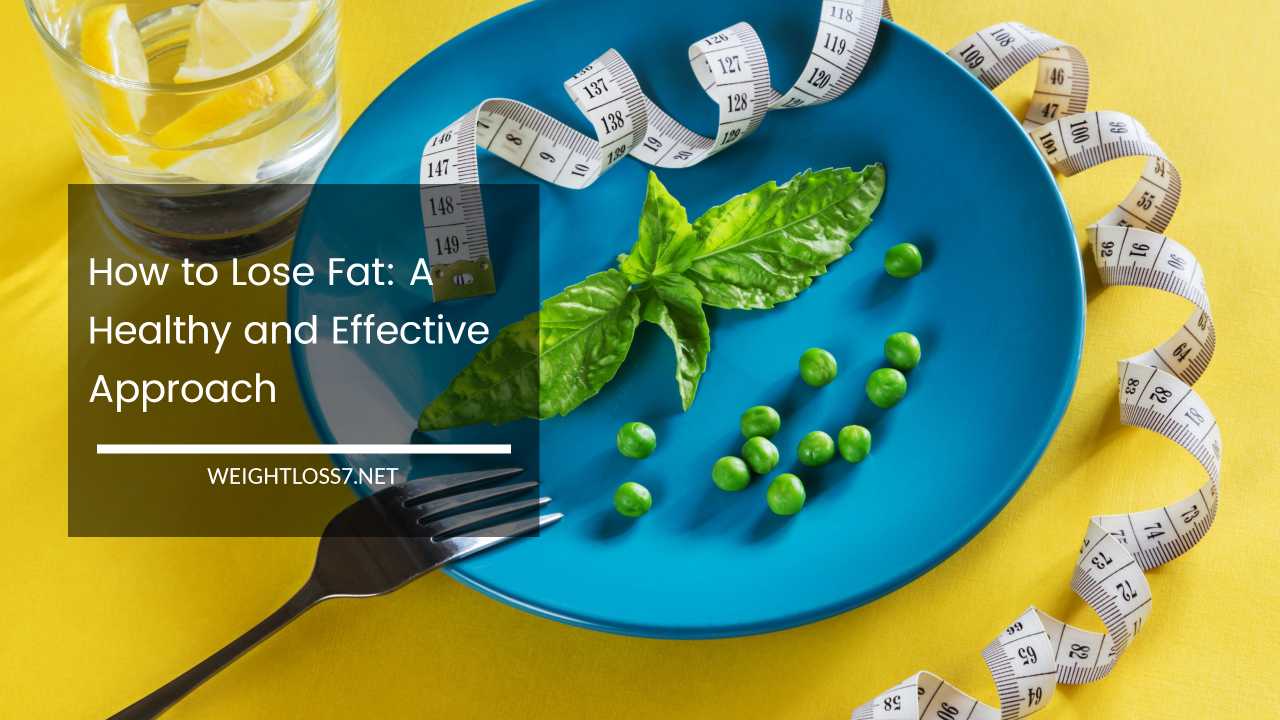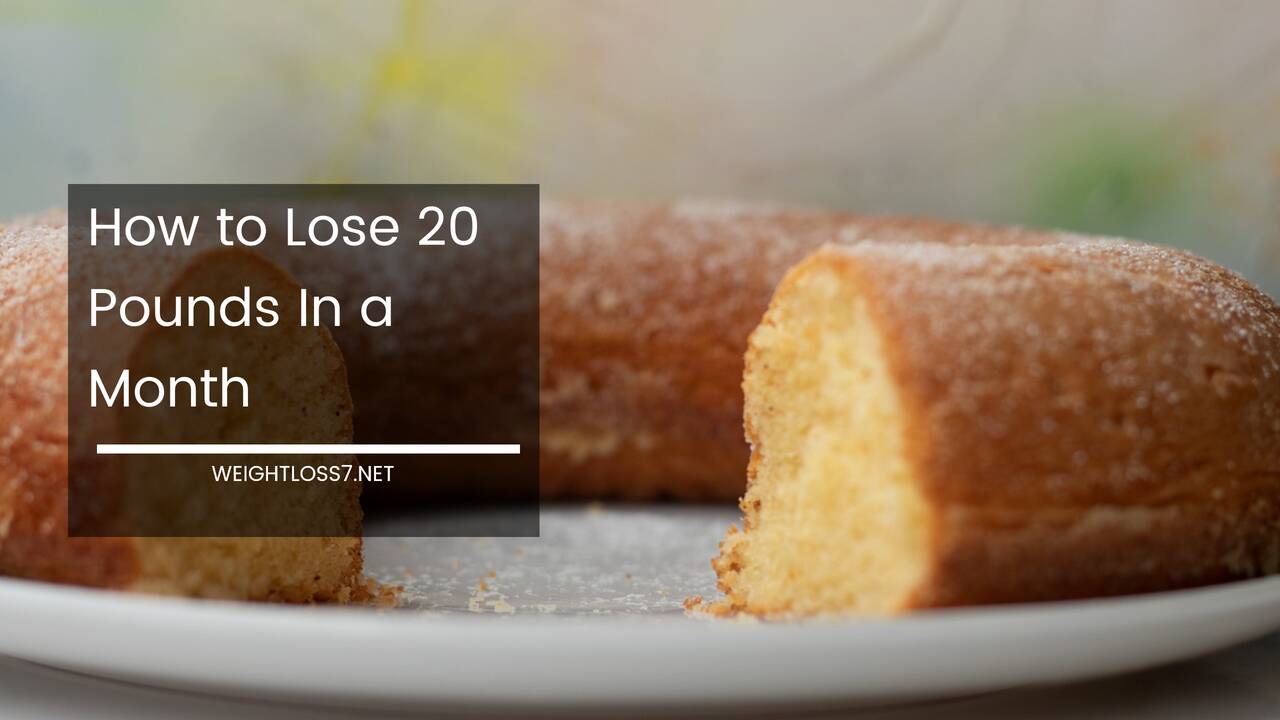How to Lose Fat: A Healthy and Effective Approach

How to Lose Fat
In today’s world, where health and fitness are increasingly prioritized, the desire to shed excess fat and achieve a leaner physique is common among many individuals.
However, navigating the process of fat loss can be overwhelming with the plethora of information available. In this article, we will provide you with a comprehensive guide on how to lose fat healthily and effectively, ensuring you attain your fitness goals while maintaining overall well-being.
1. Introduction
Losing fat is not merely about achieving a certain aesthetic; it’s about promoting a healthier lifestyle and reducing the risk of various health conditions.
Before diving into the specifics of fat loss, it’s essential to understand the concept thoroughly. Fat loss refers to the reduction of adipose tissue in the body, which is crucial for maintaining optimal health.
2. Set Clear Goals
To embark on a successful fat loss journey, it’s imperative to set clear and attainable goals. Identify your target weight and the timeline within which you wish to achieve it.
However, be realistic in your approach. Rapid weight loss is often unsustainable and can lead to various health complications.
3. Adopt a Balanced Diet
A balanced diet plays a pivotal role in fat loss. Focus on consuming a variety of macronutrients, including proteins, carbohydrates, and fats. Opt for whole foods while minimizing the intake of processed and sugary items.
4. Practice Portion Control
Even with a balanced diet, overeating can hinder your fat loss progress. Educate yourself on appropriate portion sizes and consider using smaller plates and bowls to avoid overindulgence.
5. Stay Hydrated
Water is often underestimated in its role in fat loss. Staying adequately hydrated aids in digestion, metabolism, and overall well-being. Aim to drink plenty of water throughout the day.
6. Regular Exercise Routine
Exercise is a cornerstone of any fat loss journey. Incorporate a combination of cardiovascular workouts and strength training exercises to maximize fat burning potential.
7. Manage Stress Levels
Stress can trigger the release of cortisol, a hormone that promotes fat storage, particularly around the abdominal area. Employ stress-relief techniques such as meditation, yoga, or spending time in nature.
8. Get Enough Sleep
Sleep is crucial for the body’s recovery and repair processes. Lack of sleep can disrupt hormone balance and hinder fat loss efforts. Establish a consistent bedtime routine to ensure quality sleep.
9. Avoid Crash Diets
Extreme diets that severely restrict calorie intake may result in quick weight loss, but they are unsustainable in the long run and can have adverse effects on your health. Focus on making gradual and sustainable lifestyle changes.
10. Track Progress
Monitoring your progress is essential to stay motivated. Keep track of your weight loss, fitness achievements, and other relevant metrics. Celebrate milestones, no matter how small they may seem.
11. Surround Yourself with Support
Having a support system can make a significant difference in your fat loss journey. Seek guidance from fitness experts, or join support groups where you can share experiences and seek encouragement.
12. Address Emotional Eating
Emotional eating can be a barrier to successful fat loss. Identify triggers and find alternative coping mechanisms that do not involve turning to food.
13. Incorporate Fat-Burning Foods
Certain foods can boost your metabolism and aid in fat burning. Include items like green tea, chili peppers, and lean proteins in your diet. Experiment with recipes and meal ideas that incorporate these ingredients.
14. Stay Consistent and Patient
Fat loss is not an overnight process, and results may take time to manifest. Embrace the journey and stay committed to your goals, even during challenging times.
15. Conclusion
Losing fat is achievable through a combination of a balanced diet, regular exercise, and a positive mindset. Embrace a healthy and sustainable approach to fat loss, and you’ll not only achieve your desired physique but also enhance your overall well-being.
FAQs
1. Is it necessary to follow a strict diet plan to lose fat? While following a balanced diet is essential for fat loss, it’s not always necessary to adhere to strict diets. Focus on making healthy food choices and adopting sustainable eating habits.
2. Can I spot-reduce fat from specific areas of my body? Spot reduction is a myth. Fat loss occurs throughout the body, and it’s not possible to target specific areas for fat burning.
3. How many times a week should I exercise to lose fat? Aim for at least 150 minutes of moderate-intensity aerobic exercise or 75 minutes of vigorous-intensity aerobic exercise per week, along with muscle-strengthening activities on two or more days a week.
4. Are cheat meals acceptable during a fat loss journey? Occasional cheat meals can help satisfy cravings and prevent feelings of deprivation. However, moderation is key, and they should not become a regular habit.
5. Should I consult a healthcare professional before starting a fat loss program? If you have any underlying health conditions or concerns, it’s advisable to consult a healthcare professional or a registered dietitian before beginning any fat loss program.

















